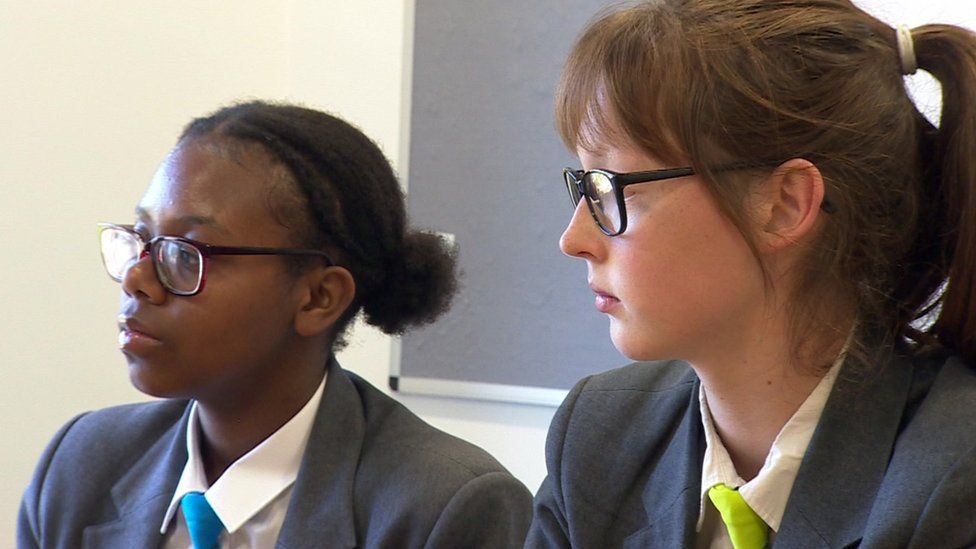Schools facing 'financial cliff edge'
- Published
- comments

Almost a third of local authority secondary schools in England are unable to cover their costs, a study suggests.
The Education Policy Institute says its research shows the proportion of such schools with budgets in the red has almost quadrupled in four years.
And the average local authority secondary school debt is £483,000.
But the Department for Education says that across all types of state schools, more than 90% are in surplus.
Former Education Minister David Laws, who chairs the Education Policy Institute (EPI), said the latest school budget figures, for 2017-18, showed a "marked deterioration".
'Financial cliff edge'
Head teachers' leader Geoff Barton said the study showed funding levels were "unsustainable" and many schools were now facing a "financial cliff edge".
Mr Barton, leader of the ASCL head teachers' union, warned that without adequate funding for schools, "educational standards will deteriorate".
There are particular problems in secondary schools, the EPI says, with about one in 10 local authority secondary schools having funding shortfalls of more than 10% of their income.
Mr Laws said the government should prioritise supporting schools facing such "excessive" funding difficulties.
The think tank says it is difficult to establish directly comparable figures for individual academies that are part of multi-academy trusts but 50% of secondary academies have in-year deficits.
The report also highlights the unevenness of funding levels.
And while there are rising numbers of schools struggling with budget problems, there are also many with surpluses, worth in total about £1.8bn and including £250m not earmarked for any expenditure.
Sliding into debt
But the National Education Union says that funding is not keeping pace with rising cost pressures - and that since 2015 the school system has 326,000 more pupils.
There has been a sustained campaign over school funding by the WorthLess? grassroots group of head teachers.
West Sussex head teacher Jules White, the group's leader, said there were widespread concerns over school funding shortages among the 7,000 head teachers supporting the campaign.
They have complained of having to ask parents for contributions and have cast doubt on what the government says about school budgets.
Mr White accused the Department for Education and the Treasury of "hiding behind slogans" while schools were "sliding into greater and greater debt".
He said that even though schools were reporting worsening finances they were "being asked to prop up all manner of other social care and support services".
"The notion that head teachers are sitting on pile of cash whilst making awful cuts to their school service and to teacher numbers is fanciful," said the school funding campaigner.
Labour's shadow education secretary, Angela Rayner, said the "number of schools in deficit is skyrocketing" but the government was "refusing to accept that this is creating a crisis".
School surplus growing
While the figures show the financial problems in secondary schools, there are fewer primary schools facing such debts.
And the Department for Education says that the overall picture across the state school sector is more positive.
"The report itself shows 94% of academy trusts and almost 90% of local authority maintained schools are reporting a cumulative surplus or breaking even - and, 45% of maintained schools have even been able to increase the level of their cumulative surplus in 2017-18," a Department for Education spokesman said.
"While the core schools and high-needs budget is rising from almost £41bn in 2017-18 to £43.5bn by 2019-20, we do recognise the budgeting challenges schools face.
"That is why the education secretary has set out his determination to work with the sector to help schools reduce the £10bn they spend on non-staffing costs and ensure every pound is spent as effectively as possible to give children a great education."
- Published8 October 2018
- Published2 October 2018
- Published4 July 2018